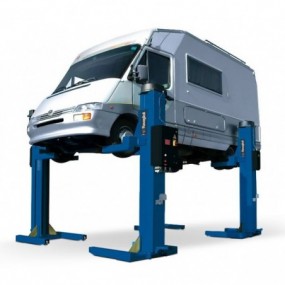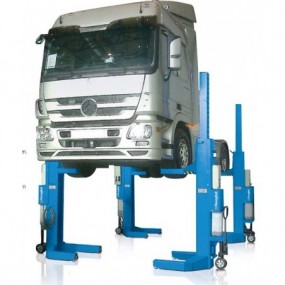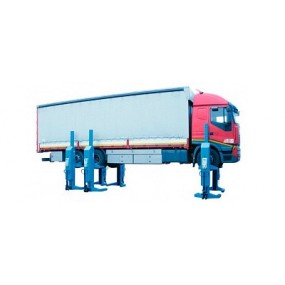Which Truck Lift is Right for Your Repair Shop? Discover the Different Types and Their Benefits for Heavy Trucks and Lorries
Which Truck Lift is Right for Your Repair Shop? Discover the Different Types and Their Benefits for Heavy Trucks and Lorries
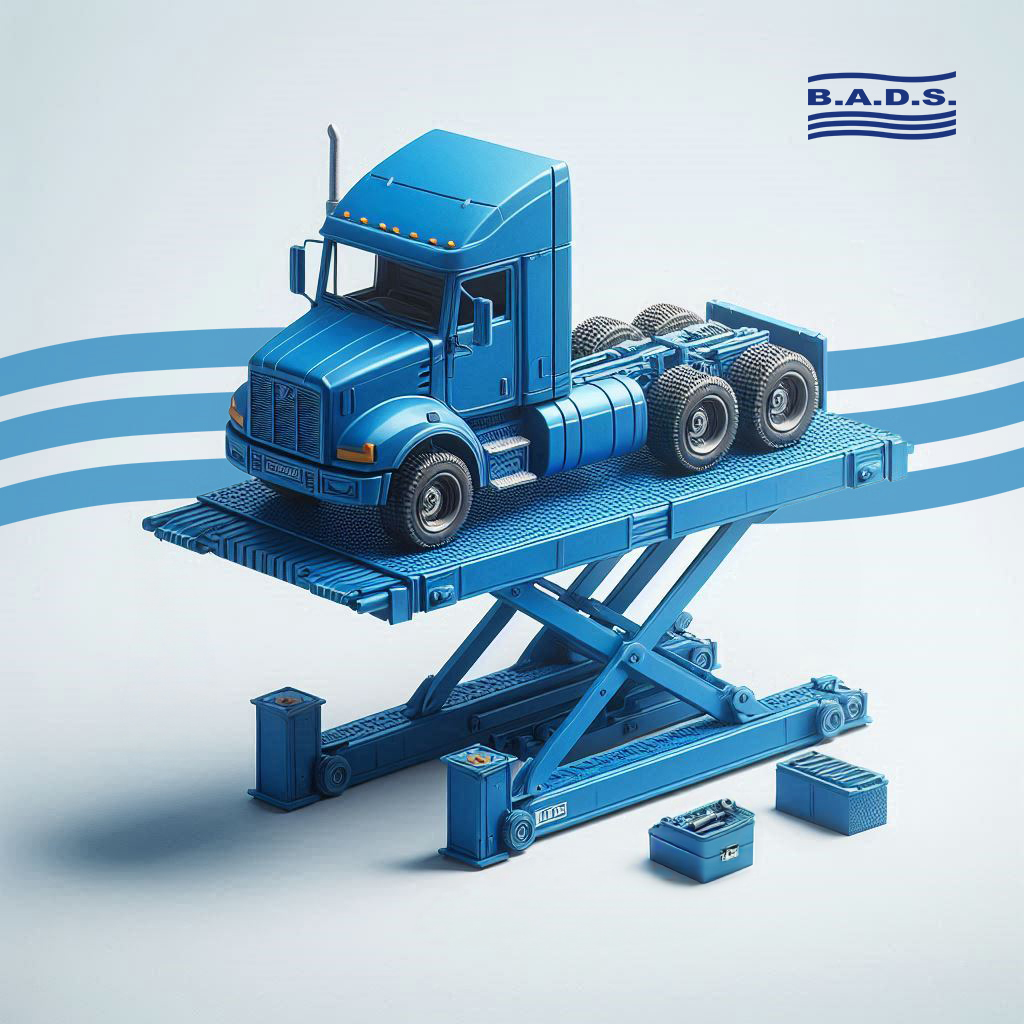
Are you struggling to find the perfect lift for servicing heavy trucks and lorries in your repair shop? Choosing the right truck lift can dramatically enhance your shop’s efficiency and ensure the safety of both your technicians and the vehicles they work on. In this post, we’ll explore the different types of truck lifts available for heavy-duty use and help you identify which one is best suited to your shop’s specific needs, maximizing both productivity and safety.
Contents
1. Importance of Choosing the Right Truck Lift for Heavy Vehicles
2. Types of Truck Lifts for Heavy Vehicles
3. Key Considerations When Choosing a Truck Lift for Heavy Vehicles
4. Benefits of Each Type of Truck Lift
5. Real-World Examples and Testimonials
Case Study: Heavy Truck Repair
1. Importance of Choosing the Right Truck Lift for Heavy Vehicles
When it comes to servicing heavy trucks and lorries, having the right equipment is crucial. Not only does the correct truck lift improve workflow efficiency by allowing technicians to work more comfortably and quickly, but it also plays a significant role in maintaining safety standards. Here are some key reasons why choosing the right truck lift is important:
- Efficiency: A well-chosen truck lift streamlines the repair process, reducing downtime and increasing the number of vehicles that can be serviced each day.
- Safety: Proper lifting equipment ensures the stability of heavy vehicles, preventing accidents and injuries to technicians.
- Versatility: The right lift can accommodate a variety of heavy truck sizes and types, making your shop more adaptable to different repair tasks.
2. Types of Truck Lifts for Heavy Vehicles
There are several types of truck lifts available, each designed to meet specific needs and conditions in a repair shop. Understanding the benefits and ideal use cases for each type will help you make an informed decision.
Description: Four-post lifts feature drive-on ramps supported by four sturdy posts, making them ideal for heavy-duty use.
Benefits:
- High weight capacity, capable of lifting very heavy trucks and lorries.
- Excellent stability, providing a safe working environment for technicians.
- Suitable for a wide range of repairs, including alignments and general maintenance.
Ideal For: High-volume repair shops that frequently service a wide range of heavy trucks and lorries.
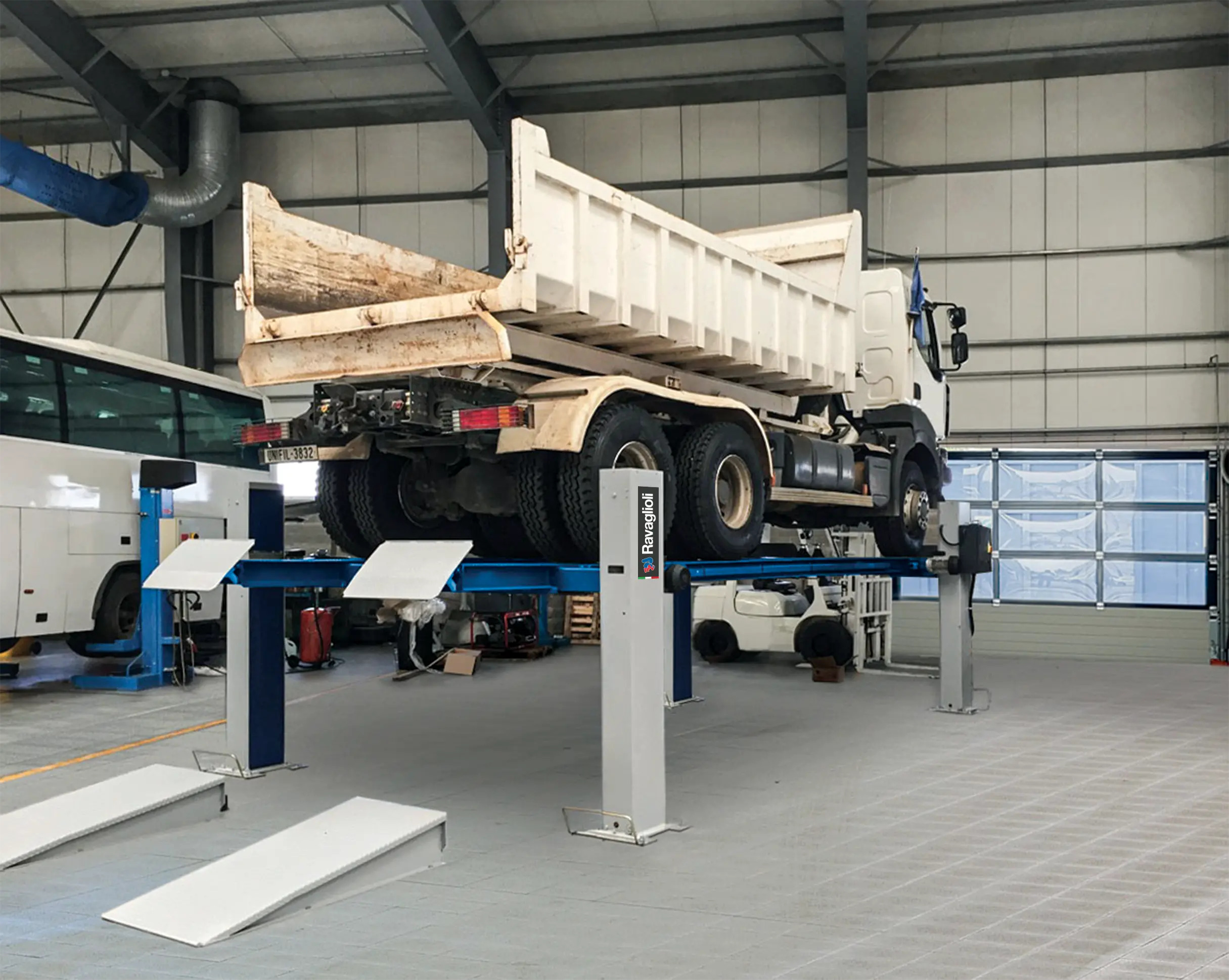
Description: Mobile column lifts consist of individual columns that can be positioned around the truck, allowing for great flexibility.
Benefits:
- High weight capacity, making them suitable for the largest trucks and lorries.
- Portable and flexible, allowing for easy repositioning and storage.
- Ideal for workshops with changing vehicle types and sizes.
Ideal For: Shops that need to frequently reposition lifts or handle oversized vehicles.
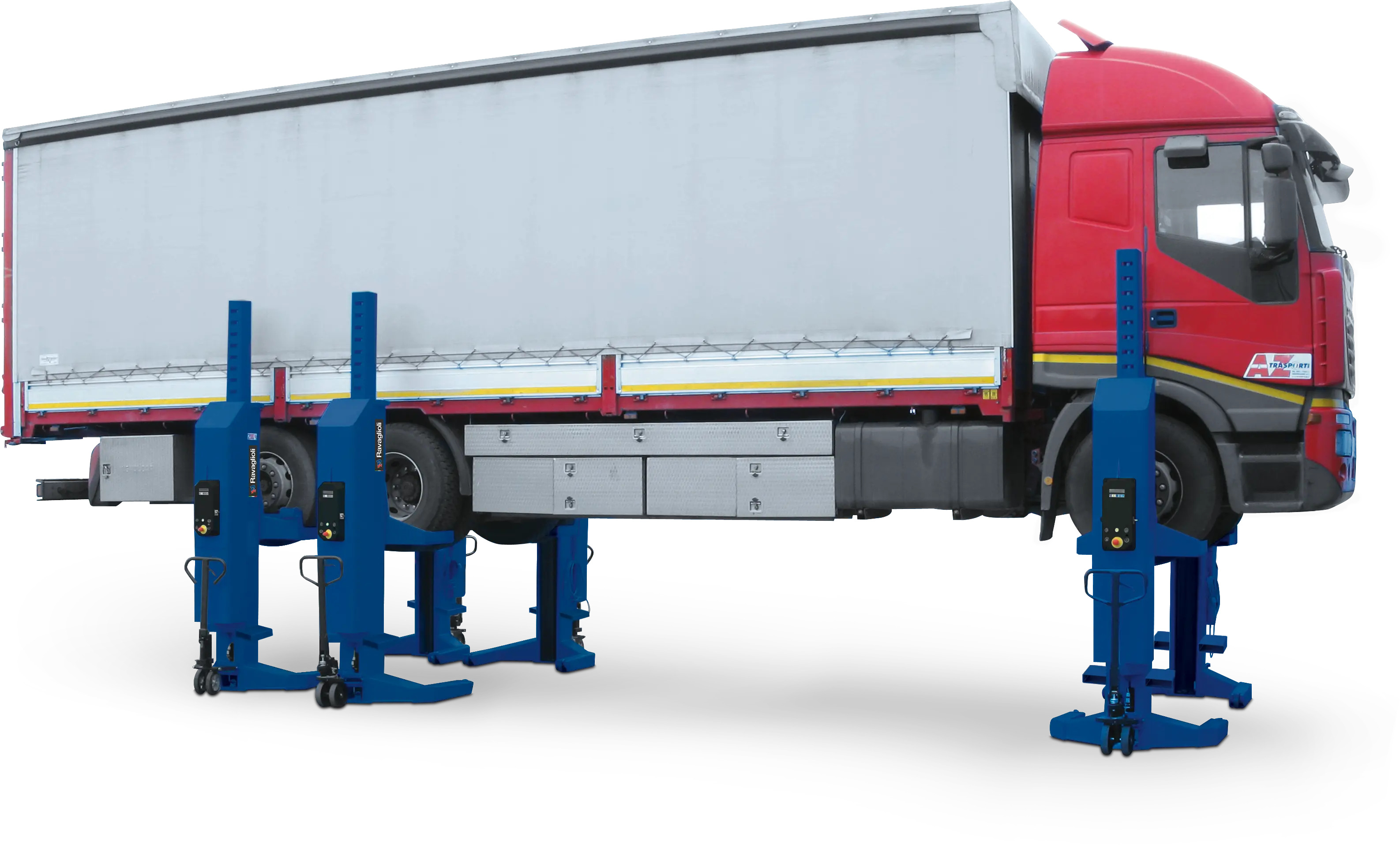
Description: In-ground lifts are installed into the shop floor, typically using hydraulic or piston mechanisms.
Benefits:
- Space-saving design, as they are unobtrusive when not in use.
- High lifting capacity, suitable for heavy-duty trucks.
- Clean and professional appearance, enhancing the overall shop aesthetic.
Ideal For: Shops with space constraints looking for a long-term, integrated lifting solution.
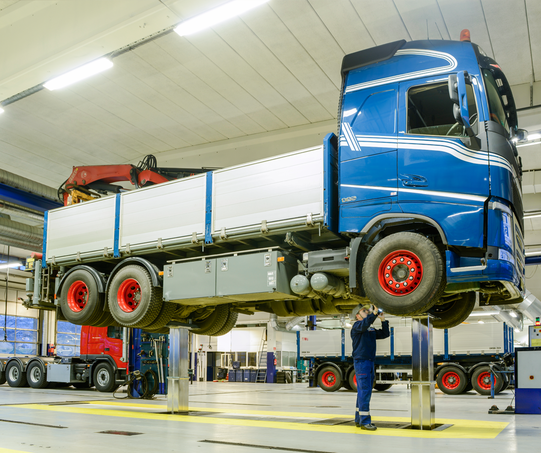
Description: Parallelogram lifts use platforms that lift vehicles via a parallelogram-style mechanism, offering robust lifting capabilities.
Benefits:
- Extremely stable with a high weight capacity, ideal for very heavy-duty vehicles.
- Provides ample space underneath the vehicle for maintenance and repairs.
- Suitable for a variety of heavy trucks and lorries.
Ideal For: Shops needing robust lifting solutions for very heavy-duty vehicles.
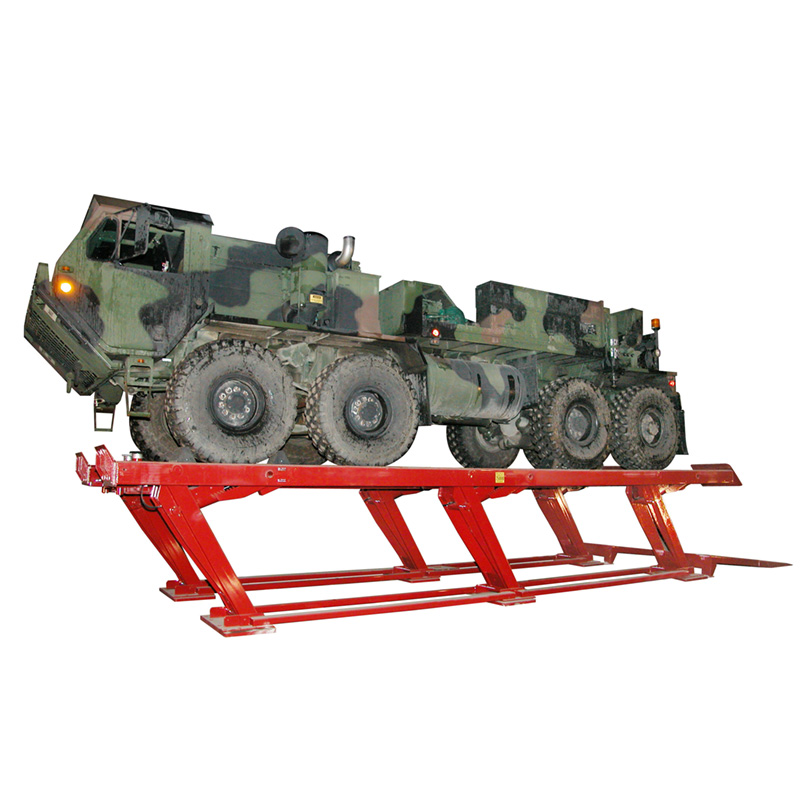
Description: Scissor lifts use platforms lifted by a scissor mechanism, capable of supporting heavy loads while remaining compact when not in use.
Benefits:
- Compact design, saving space in the shop.
- Versatile, suitable for various maintenance tasks.
- Easy to operate and maintain.
Ideal For: Shops with limited space needing flexible and compact lifting solutions.
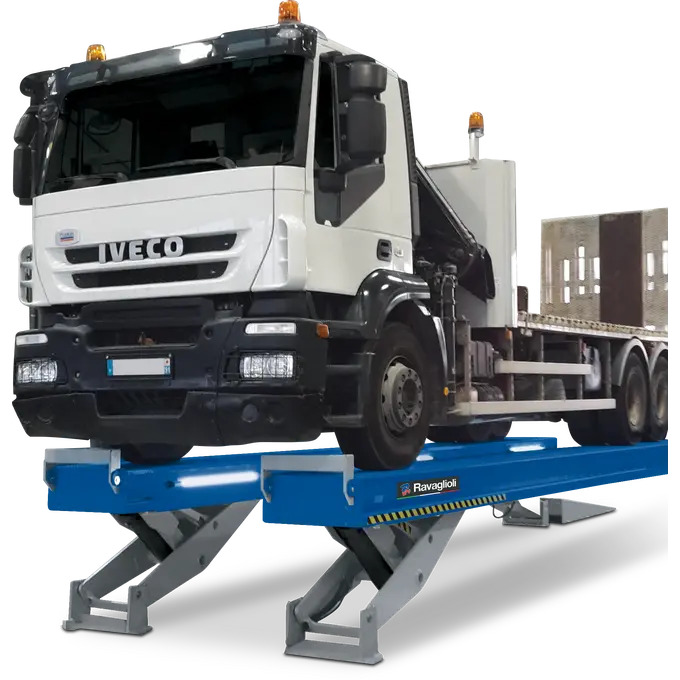
3. Key Considerations When Choosing a Truck Lift for Heavy Vehicles
Choosing the right truck lift involves considering several critical factors to ensure it meets the specific needs of your shop and the vehicles you service.
- Space Availability: Assess the footprint of each type of lift and its impact on your shop’s floor space.
- Ceiling Height: Ensure your shop has adequate ceiling height to accommodate the lift’s height requirements for large trucks and lorries.
- Weight Capacity: Verify that the lift can handle the heaviest trucks you service.
- Vehicle Types: Consider the range of heavy vehicles, including lorries, semi-trucks, and buses, that will be using the lift.
- Initial Investment: Compare the initial costs of different lifts, keeping in mind that some types may require more substantial upfront investment.
- Maintenance Costs: Factor in the long-term maintenance costs and potential repairs over the lift’s lifetime.
- Installation Complexity: Evaluate the requirements for setting up each type of lift, including any modifications needed to your shop.
- Ease of Use: Determine the level of training required for your technicians to operate the lift safely and efficiently.
4. Benefits of Each Type of Truck Lift
To help you make an informed decision, here are the detailed benefits and drawbacks of each type of truck lift.
Four-Post Lifts
Pros:
- Extremely stable and capable of lifting heavy vehicles.
- Versatile for a wide range of repairs, including alignments.
- Easy to use, with drive-on ramps simplifying the lifting process.
Cons:
- Requires significant floor space, which may not be ideal for smaller shops.
- Installation can be more complex and expensive compared to other types.
Pros:
- Highly flexible, capable of lifting the largest and heaviest trucks.
- Portable, allowing for easy repositioning and storage.
- Suitable for a wide variety of vehicle sizes and types.
Cons:
- Higher cost compared to fixed lifts.
- Requires ample storage space when not in use.
Pros:
- Saves space, as the lift is integrated into the shop floor and unobtrusive when not in use.
- Provides a clean and professional appearance.
- High lifting capacity suitable for heavy-duty trucks.
Cons:
- High initial installation cost.
- Potential for complex and costly repairs if the lift malfunctions.
Pros:
- Robust and extremely stable, with high weight capacity.
- Provides ample space underneath the vehicle for maintenance.
- Suitable for very heavy-duty vehicles.
Cons:
- Large footprint, requiring significant shop space.
- Can be more expensive than other types of lifts.
Pros:
- Compact design, saving space when not in use.
- Versatile, suitable for various maintenance tasks.
- Easy to operate and maintain.
Cons:
- Limited height range, which may not be ideal for all underbody work.
- Not as stable as four-post or parallelogram lifts for extremely heavy vehicles.
5. Real-World Examples and Testimonials
To provide a practical perspective, let's look at some real-world examples and testimonials from repair shops that have chosen different types of truck lifts.
Case Study: Heavy Truck Repair
Heavy Truck Repair is a high-volume shop that services a wide range of heavy trucks and lorries. They opted for four-post lifts due to their stability and high weight capacity. According to the shop manager, the four-post lifts have significantly improved their workflow, allowing technicians to perform a variety of repairs, including alignments, with ease.
Case Study: Fleet Services
Fleet Services, specializing in maintaining a large fleet of lorries, chose mobile column lifts for their flexibility and portability. The shop owner noted that the ability to reposition the lifts as needed has been invaluable, especially when servicing oversized vehicles. This choice has also allowed them to optimize their shop floor space efficiently.
Povilas Liaukonis, Head of Sales, who in a repair workshop equipment industry is with over 15 years of experience, recommends in-ground lifts for shops with space constraints. He highlights their unobtrusive design and high lifting capacity as key advantages. However, he advises shops to carefully consider the initial installation costs and ensure they have a robust maintenance plan in place.
Choosing the right truck lift for your repair shop is a crucial decision that can significantly impact your efficiency, safety, and overall productivity. By understanding the different types of truck lifts available for heavy-duty use and considering factors such as shop size, types of trucks serviced, budget, and installation requirements, you can make an informed choice that best suits your specific needs.
Investing in the right lift not only enhances your shop's capability to handle a variety of heavy trucks and lorries but also ensures a safer and more efficient working environment for your technicians. Take the time to assess your needs, consult with professionals, and select a lift that will provide long-term benefits for your repair shop.
If you have any questions or need professional consultation, and detailed guides on installation, maintenance, and reviews of specific lift kits for heavy trucks, feel free to contact us.
 Tools
Tools
 Automotive Workshop Equipment
Automotive Workshop Equipment
 Diagnostic Tools
Diagnostic Tools
 Car Lifts
Car Lifts
 Air Compressors
Air Compressors
 Automotive Educational Equipment
Automotive Educational Equipment
 Other Products
Other Products
 ALL PRODUCTS
ALL PRODUCTS
 AutoEQ by BADS
AutoEQ by BADS




 Product catalog
Product catalog

